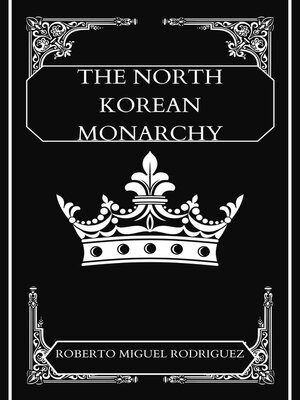
Sign up to save your library
With an OverDrive account, you can save your favorite libraries for at-a-glance information about availability. Find out more about OverDrive accounts.
Find this title in Libby, the library reading app by OverDrive.



Search for a digital library with this title
Title found at these libraries:
| Library Name | Distance |
|---|---|
| Loading... |
The North Korean Monarchy explores the unique political structure of North Korea, offering a detailed analysis of how the regime, under the leadership of the Kim family, can be classified not only as a dictatorship but also as a monarchy. This collection of essays delves into the hereditary nature of North Korean leadership, examining the dynastic succession that has transferred power from Kim Il-sung to his son, Kim Jong-il, and now to his grandson, Kim Jong-un. The book provides a comprehensive look at the personalist leadership style, the pervasive cult of personality, and the royal-like reverence the Kim family enjoys, which sets the regime apart from typical authoritarian states.
Each essay addresses key elements that contribute to the monarchic characteristics of North Korea, including the centralization of power, the state ideology of Juche that elevates the leadership to near-religious status, and the symbols and rituals that reinforce the Kim family's sovereign control. Through historical analysis, the book explores how North Korea has maintained a dynastic power structure that reflects the traits of traditional monarchies, such as royal family status, dynastic succession, and the exclusivity of privileges afforded to the Kim family.
The essays in The North Korean Monarchy also analyze the implications of this system on the nation's identity, the sovereignty of the Kim family, and the loyalty demanded from the population. By exploring the overlap between monarchical and dictatorial features, this book provides a nuanced understanding of North Korea's political system and the central role the Kim dynasty plays in its continuity.
Ideal for readers interested in North Korean studies, political science, or the study of authoritarian regimes, this collection offers a fresh perspective on one of the world's most isolated and enigmatic states.







